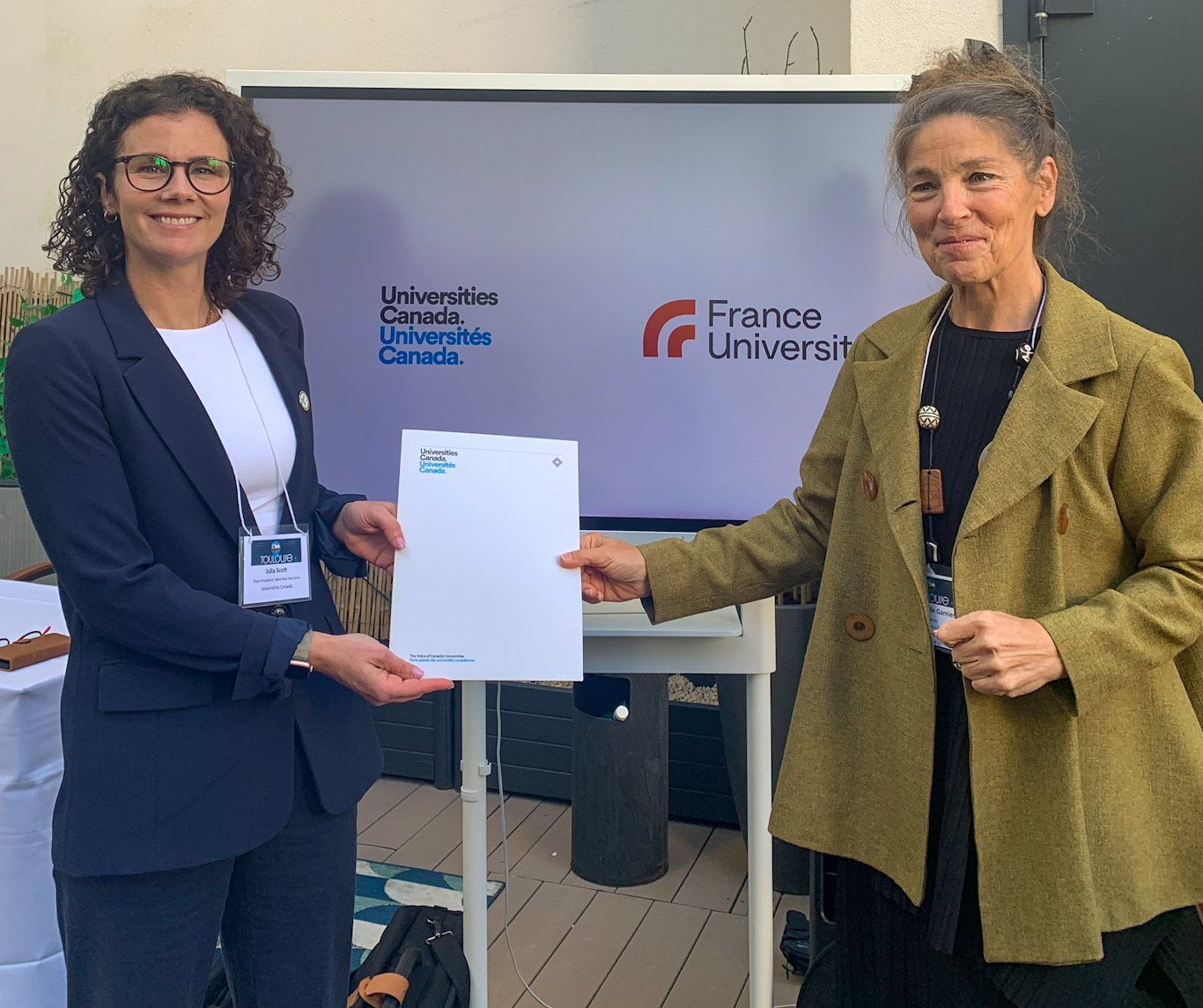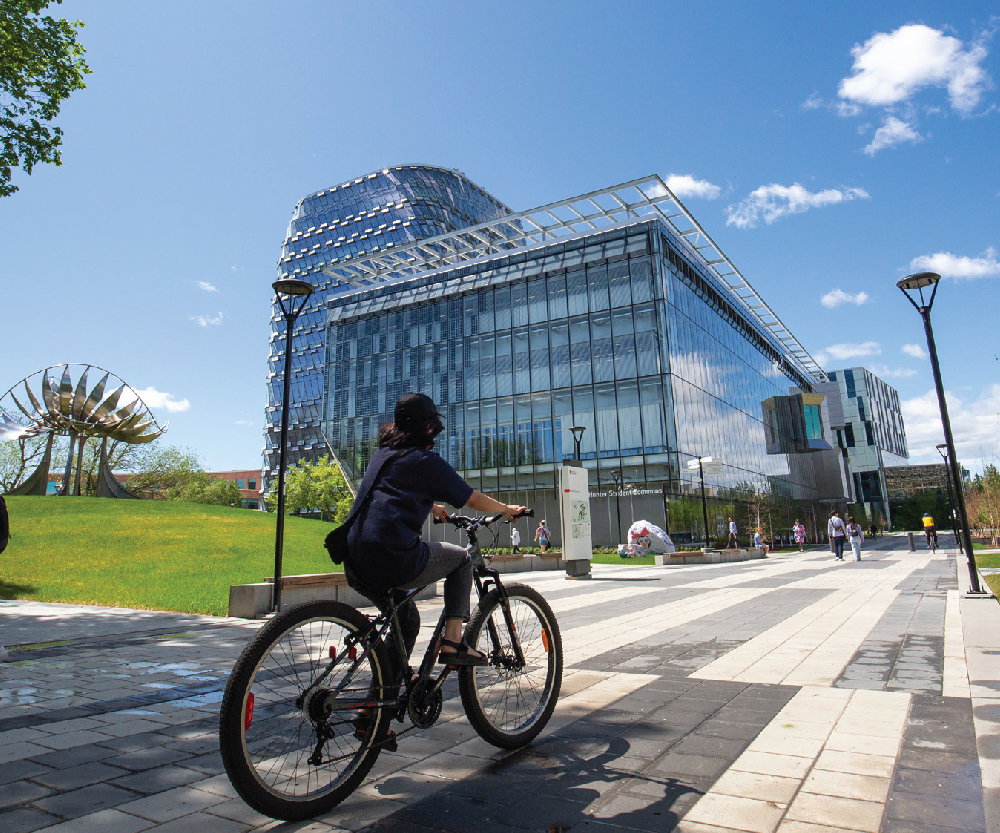How to win the global war for university talent

This op-ed was published in the Daily Gleaner on December 5, 2016.
By Eddy Campbell, president and vice-chancellor of the University of New Brunswick
Last month, the federal government announced major changes to the express entry system which will make it easier for top talent from around the world to call Canada home – and to meet the government’s new immigration target of 300,000 people per year. This is a welcome signal that Ottawa is committed to making it easier for international students, researchers and academics to become permanent residents to Canada.
We’re an aging country, which means immigration is more and more important to maintaining our quality of life and our opportunities for economic growth. We need to attract the most highly qualified and highly skilled immigrants who are ready to rock ’n’roll when it comes to being innovative and growing our economy. Through our research excellence, talent mobilization and global partnerships, Canada’s universities are key drivers for both innovation and economic prosperity. Canada’s immigration strategy must include researchers, academics and students who can bring cutting-edge expertise, skills and networks to our institutions.
When we make Canada a more enticing destination for international students, it has a profound impact on our Canadian-born students. Sitting cheek by jowl with people from all over the world contributes to their development as globally engaged citizens. International students also contribute an awful lot to the economic activity in our university towns and cities.
The get-up-and-go these international students must have to leave their home countries to study elsewhere is also inspiring. Like many other universities across Canada, the University of New Brunswick wants to instill entrepreneurial, innovative attitudes in its students; the presence of highly motivated international students on campus contributes nicely to this goal.
So it’s in our best interest to target bright young minds. But there’s a considerable barrier to attracting international students to campuses across the country: study permit processing times. Canada’s universities can do all of the marketing and recruiting in the world — but if there are too many forms to fill out that take too long to get processed, these students will turn to other countries for their studies. The chance to obtain permanent residency after graduation is also an important attraction for international students. Minister of Immigration, Refugees and Citizenship John McCallum’s leadership in making improvements to the express entry system for them is a very welcome initiative.
As of Nov. 19, the express entry system awards points to international students who completed their studies in Canada. Points will also be awarded for job offers to eligible candidates already in Canada on work permits exempt from labour market impact assessments, a welcome change that will recognize the strong applications from candidates such as foreign faculty at Canadian universities.
As president of the University of New Brunswick, I’m also acutely aware of the need for top-notch international talent; not just at my school — but at those throughout Atlantic Canada and across the entire country. But certain features of Canada’s immigration system make securing that talent unnecessarily difficult. If we’re to commit to making our country a top destination for skilled immigrants, that must be rectified. And we academics aren’t the only ones who think so: Canada’s high-tech companies, another major source of innovation, are also eager to see policies that will make it easier for them to attract and retain the world’s best and brightest.
To go along with the express entry changes, Universities Canada — a non-profit organization that represents universities across the country — has called on the federal government to make other specific changes to several areas of the immigration process to give Canada a fighting chance in the global war for talent.
One of those areas is how temporary work permits are issued under the international mobility program. Canadian universities use this program to host a wide range of academic talent on their campuses for teaching and research purposes — but because its eligibility criteria are not consistently applied, universities can’t rely on it for getting the talent they need. The process needs to be greatly simplified.
We’re already a top study destination for foreign students because of our welcoming and open culture, but we need to do everything we can to make Canada the best place to come for a university education. Globally competitive study permit processing times will go a long way toward achieving this goal.
Now is the time to seize momentum and topple these bureaucratic barriers. World-class research must involve a global outlook, so the market for our students and faculty must be global in nature. The federal government is making it easier for our universities to bring in the talent they need — and put our country in a better position to drive and sustain long-term economic growth and innovation.
The opportunity for Canada has never been better. And we’re going to see results.
-30-
About Universities Canada
Universities Canada is the voice of Canada’s universities at home and abroad, advancing higher education, research and innovation for the benefit of all Canadians.
Media contact:
Lisa Wallace
Assistant Director, Communications
Universities Canada
communications@archives.univcan.ca
Tagged: Global connections and development, Skills and talent
Related news
-

Canadian universities strengthen ties with France and other European nations amid Horizon Europe agreement
-

Investing in universities is an investment in Canada’s future
-

BCDI 2030 launches second round of funding for scholarship projects for study in Canada
-

Universities are advancing technology through international partnerships